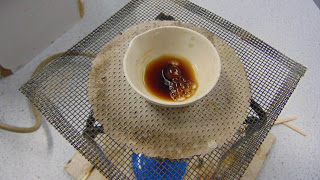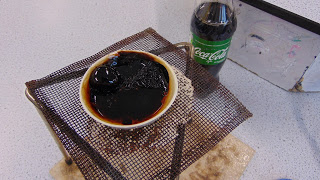Today I would like to introduce you to a series of simple experiments you can do with your science club students. The main focus of the investigation is Coca Cola which you can easily get in a shop.
1. Label analysis
Start by looking at the labels and ask your students to compare sugar content in different types of Coca Cola.
2. Heat it up to make caramel
Heat up your samples to see if they are going to caramelize. Ask your students to link their observations to the sugar content they read about on the labels.
3. Check what gas makes Coca Cola bubble
Test the gas in Coca Cola by heating the sample up gently and passing it through limewater.
4. Testing for sugars
Use Benedict's solution to test for the presence of sugars.
5. Filtration
Use activated charcoal to see if you can filter out the colourings.
6. Exposure for a longer period of time
Set up an experiment to see how the exposure to the acidic conditions over longer period of time is going to affect an egg and a dirty coin.
Poster from Compound Interest with additional information (
click here)
Hope you try some of these experiments!
I wish you great lessons!
Karolina





























































